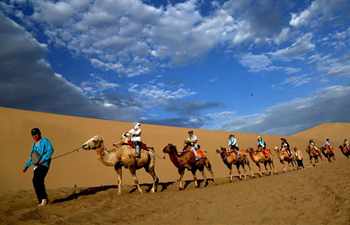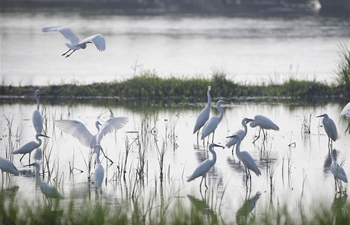SANTIAGO, Aug. 1 (Xinhua) -- Chilean President Sebastian Pinera led a series of activities on Easter Island Wednesday to highlight a new law designed to preserve the cultural and natural heritage of the remote island.
The law restricts tourists on the island, also known by its indigenous name Rapa Nui, to a stay of no longer than 30 days, mainly to minimize the impact of visitors during the peak tourism season.
"We know full well there are many tourist sites that were destroyed and then disappeared because they were not protected in time," Pinera said.
The law will be in effect by February 2019, obliging those who plan to stay longer, mainly seasonal tourism workers, to apply for a special extension from the local government.
Residents welcomed the measure, according to Rapa Nui Mayor Pedro Edmunds, because they have seen their quality of life deteriorate with environmental degradation, increased pollution and an overburdened waste management system.
Chile's Deputy Tourism Minister Monica Zalaquett told El Mercurio Online if a person wishes to work on the island, "there must be a work contract. A person can no longer simply go to the island and try their luck."
The goal "is to know who is on the island, what their situation is and their intent to stay," Zalaquett said.
"Those who do not follow these procedures, both businesses and individuals alike, risk a monetary fine, legal issues and being ejected from the island," she warned.
According to the 2017 Census, the resident population of the island numbers 7,750, which swells to 15,000 during the peak season.
The government is following the practice of the Galapagos Islands off the coast of Ecuador, which restricts the number of visitors as part of a conservation effort.
Easter Island, known for its giant stone-carved heads facing out to sea, is located at the southernmost point of the Polynesian Triangle in the South Pacific, and is considered one of the world's remotest inhabited regions.

















